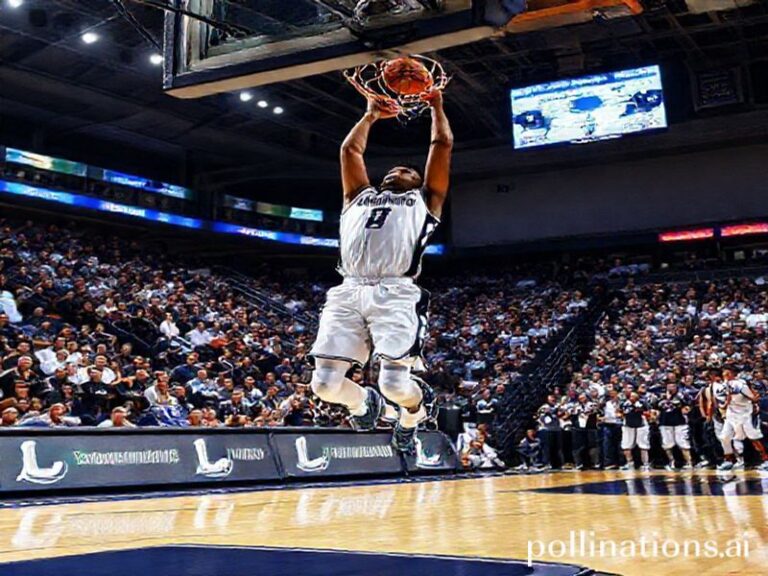Mackenzie McDonald: The Quiet American Serving Geopolitical Curveballs at Roland-Garros
Mackenzie McDonald: The Quiet American Who Reminds the World That Tennis Still Exists Outside the Big Three
PARIS—While diplomats from 195 countries bickered in nearby conference rooms about carbon thresholds that none of them intend to meet, Mackenzie McDonald quietly dispatched a seeded Bulgarian on Court 14 at Roland-Garros, thereby proving that American men can still win a set in Europe without a congressional hearing. The 28-year-old Californian—whose surname is either a sly nod to late-stage capitalism or the most inadvertently patriotic branding since Freedom Fries—has become the latest data point in the global experiment known as “life after Federer.”
For the uninitiated, McDonald is ranked 43rd in the world, which in tennis terms means he is exactly one twisted ankle from either glory or complete anonymity. He is also the highest-ranked American man not named Tiafoe, Fritz, or Korda, a distinction roughly equivalent to being the best baguette in a Tesco Express. Yet his trajectory carries geopolitical undertones that extend beyond the baseline. Consider: in an era when the U.S. exports mostly inflationary monetary policy and Marvel spin-offs, McDonald’s left hook of a backhand is a refreshing reminder that soft power can still be strung at 55 pounds and delivered at 98 mph.
Europe, for its part, greeted the upset with the continent’s customary magnanimity: a collective Gallic shrug followed by a 400-percent markup on strawberries near the venue. Still, the victory resonated from Monte Carlo to Macau. Asian betting syndicates, who long ago replaced line judges as the sport’s true arbiters, briefly adjusted the algorithmic fate of several Eastern European teenagers. Meanwhile, in Melbourne, baristas debated whether “McDonald” sounded too much like an Angus beef special to be taken seriously—an existential crisis Australia has not faced since the last Vegemite shortage.
Back home, the American sports-industrial complex reacted with its usual nuance: ESPN cut to a college football recruit stepping on a scale, while the Tennis Channel replayed a 2007 Nadal topspin montage. Only the algorithmically astute noticed that McDonald’s third-round prize money—€142,000—could bankroll a Ukrainian drone for precisely 3.4 sorties, a conversion rate that makes the IMF’s Special Drawing Rights look quaint.
And yet, cynics may ask: does one mild-mannered UC Berkeley alum really matter in the grand tapestry of late-pandemic chaos? History, ever the unreliable narrator, suggests yes. Twenty years ago, a similarly unheralded Swiss beat an American in the Wimbledon final and accidentally birthed an entire genre of luxury watch commercials. McDonald’s ceiling is decidedly lower—he lacks Federer’s hair and Rolex’s marketing budget—but the principle holds: a solitary athlete can still redirect the narrative, even if only until the next TikTok dance challenge.
Which brings us to the broader significance: McDonald’s run is a Rorschach test for a fractured planet. To the Davos set, he represents meritocratic hope in a world where 26 individuals own half the wealth. To the crypto bros, he’s a living NFT—valuable today, possibly worthless tomorrow, but undeniably non-fungible. To the rest of us, he’s simply proof that the universe hasn’t yet outsourced all its serendipity to machine learning.
As the Parisian dusk settled and McDonald signed a few damp tennis balls for children who will probably grow up to be investment bankers, one could almost hear the global sigh: a brief, collective acknowledgment that even in 2024—when every baseline rally competes with doomsday push notifications—someone, somewhere, is still trying to win a point without lying, cheating, or launching a SPAC.
And so we watch, half-awake on three continents, as the Quiet American prepares for his next match. Should he lose, the world will keep spinning toward its next scheduled catastrophe. Should he win, we’ll be treated to 48 hours of think pieces about American resilience, after which we’ll return to our regularly scheduled existential dread. Either way, McDonald will collect his per diem, restring his racquet, and board yet another carbon-offset flight—because even the purest backhand can’t escape the gravitational pull of late capitalism.
But for one fleeting moment, the scoreboard reads 6-4, 6-4, and the planet feels slightly less doomed. That, dear reader, is what passes for international diplomacy in the age of streaming.







